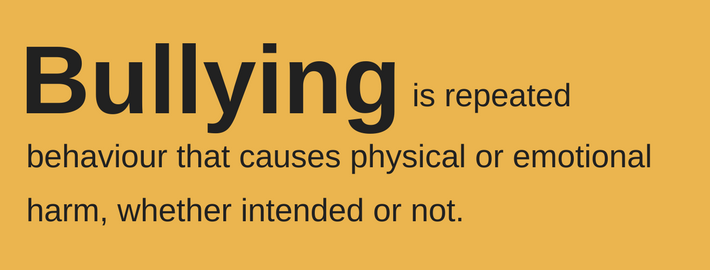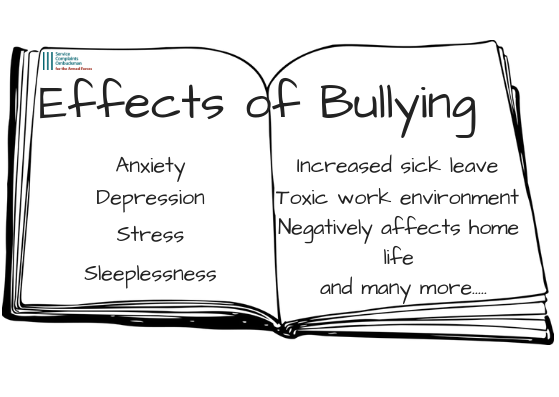November 12th-16th is National Anti-Bullying Week. It is a week dedicated to talking about the effects of bullying and strategies to stop it. As the Service Complaints Ombudsman for the Armed Forces, many of the complaints dealt with by my office concern allegations of bullying.
November 12th-16th is National Anti-Bullying Week. It is a week dedicated to talking about the effects of bullying and strategies to stop it. As the Service Complaints Ombudsman for the Armed Forces, many of the complaints dealt with by my office concern allegations of bullying. However, the majority of personnel who experience bullying do not make a formal complaint about it. In my blog this month I am looking at why this happens and why we need to do more to improve confidence in the system.
Bullying isn’t only an issue that affects children; it happens in the workplace too, and the Armed Forces are no different to any other workplace in that regard. In 2017, 16% of all Service complaints made concerned bullying. Although this is a minority of the formal complaints made, we know that it doesn’t reflect the true picture.
As reported in the Armed Forces Continuous Attitudes Survey (AFCAS) 2018, just over 1 in 10 Service personnel said they experienced behaviour they felt constituted bullying in the preceding 12 months. However, only 6% of those went on to make a formal complaint. The main reasons for not making a formal complaint were:
- Not believing anything would be done if a complaint was made (63%)
- The belief that it might adversely affect their career (50%)
- Not wanting to go through the complaints procedure (30%)
This does not mean that there is an epidemic of unreported bullying in the Armed Forces. It cannot be known what the outcome of those unmade complaints would have been. However, that 94% of personnel who believed they had experienced bullying chose not to make a formal complaint because they had no faith in the system is very concerning. Whether to make a complaint or not is a personal decision. People should never feel forced to make a complaint, but they should also never feel that there is no point, or worse still, that it would be detrimental to their career to do so.

When an individual believes that they have been wronged, the complaints process should be a positive force to get to the root of the issues. It provides an opportunity to identify and address behaviour that has no place in any workplace. This is particularly true of serious problems such as bullying which can affect individuals in a range of ways including having a negative impact on their emotional, mental and physical wellbeing. However, if the majority of people aren’t making complaints, it becomes difficult to get to the root of those issues.

Unfortunately, this is not new. I have discussed this in each of my Annual Reports since I was appointed as the then Service Complaints Commissioner in 2015. It is also something I have addressed in previous blogs. People didn’t lose faith in the complaints system overnight, so it will take time for many people to have confidence in the new streamlined system. However, it isn’t acceptable that anyone experiencing bullying doesn’t feel able to speak up. This is one of the many reasons I remain committed to the goal of improving confidence in the complaints system, which will continue to be one of my priorities for the remainder of my term.